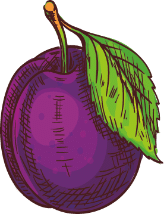
Get Schools Cooking
Our Get Schools Cooking program helps school districts transition from a heat-and-serve to a scratch-cooking operational model so they can serve students fresher, healthier, and more appetizing meals.
Applications are closed. Sign up for the interest list below to be notified when applications open again.

Get Schools Cooking
Our Get Schools Cooking program helps school districts transition from a heat-and-serve to a scratch-cooking operational model so they can serve students fresher, healthier, and more appetizing meals.
Applications are closed. Sign up for the interest list below to be notified when applications open again.
Overview
Through our most hands-on initiative, Get Schools Cooking, we meet K-12 districts where they are so they can gradually transition from serving students primarily highly processed heat-and-serve meals to serving them fresh, healthy, delicious meals made from scratch.
After conducting a comprehensive assessment of a district’s menu, financial position, facilities infrastructure, staffing, and marketing efforts, we help districts create a strategic plan and over the course of three years take actionable steps toward increasing their scratch cooking capacity. We also provide system improvement grants to help districts implement our recommendations.
Get Schools Cooking is open to school districts across the country thanks to generous funding support from Whole Kids, The Rachael Ray Foundation, Waverley Street Foundation, and other donors.


Overview
Through our most hands-on initiative, Get Schools Cooking, we meet K-12 districts where they are so they can gradually transition from serving students primarily highly processed heat-and-serve meals to serving them fresh, healthy, delicious meals made from scratch.
After conducting a comprehensive assessment of a district’s menu, financial position, facilities infrastructure, staffing, and marketing efforts, we help districts create a strategic plan and over the course of three years take actionable steps toward increasing their scratch cooking capacity. We also provide system improvement grants to help districts implement our recommendations.
Get Schools Cooking is open to school districts across the country thanks to generous funding support from Whole Kids, The Rachael Ray Foundation, Waverley Street Foundation, and other donors.
Program ImpactSince 2016 |
180,000
children getting fresher meals |
27
districts supported in 21 states |
Program ImpactSince 2016 |
|
180,000
children getting fresher meals |
|
27
districts supported in 21 states |
As a parent, knowing that my child is getting a balanced, nutritious meal at school takes a huge weight off my shoulders. Not every family has the time or resources to make every meal from scratch at home, so the fact that the school is stepping up like this shows they care. And for me, that means everything.
Images courtesy of Brownsville Independent School District Food and Nutrition Services (Get Schools Cooking Cohort 5 participant).
Details
Districts participating in Get Schools Cooking complete program components over a three-year period. Components range from an in-person two-day workshop to in-depth technical assistance. For more details about the program, visit The Lunch Box.
Accomplishments
School districts that have completed our Get Schools Cooking program have:
- Introduced a variety of scratch-cooked recipes to their menus
- Installed salad bars
- Began procuring more local ingredients
- Eliminated highly processed products such as frozen chicken nuggets, frozen pizza, and packaged sandwiches from menus
- Gained community support for school food change
- Learned how to cook raw proteins, like whole-muscle chicken
- Began offering students a wider and fresher variety of fruits and vegetables
- Implemented software to improve efficiency
- And much more!
Learn more about all six cohorts here.


Accomplishments
School districts that have completed our Get Schools Cooking program have:
- Introduced a variety of scratch-cooked recipes to their menus
- Installed salad bars
- Began procuring more local ingredients
- Eliminated highly processed products such as frozen chicken nuggets, frozen pizza, and packaged sandwiches from menus
- Gained community support for school food change
- Learned how to cook raw proteins, like whole-muscle chicken
- Began offering students a wider and fresher variety of fruits and vegetables
- Implemented software to improve efficiency
- And much more!
Learn more about all six cohorts here.
I can’t explain how informative, beneficial, and invigorating this whole experience has been. It’s really made me a better director and leader and I can see my staff are happy with the changes I’ve put into place thus far.

Special Thanks to Our Program Funders
Discover More
Specialized Programming
The Chef Ann Foundation (CAF) is able to offer specialized programming for school districts to transition their Food and Nutrition Service Departments from a heat-and-serve or processed model to one that is rooted in scratch cooking using real and whole ingredients. Specialized programming presents a unique opportunity for a district or multiple districts to receive individualized and direct support for improving their meal programs.







